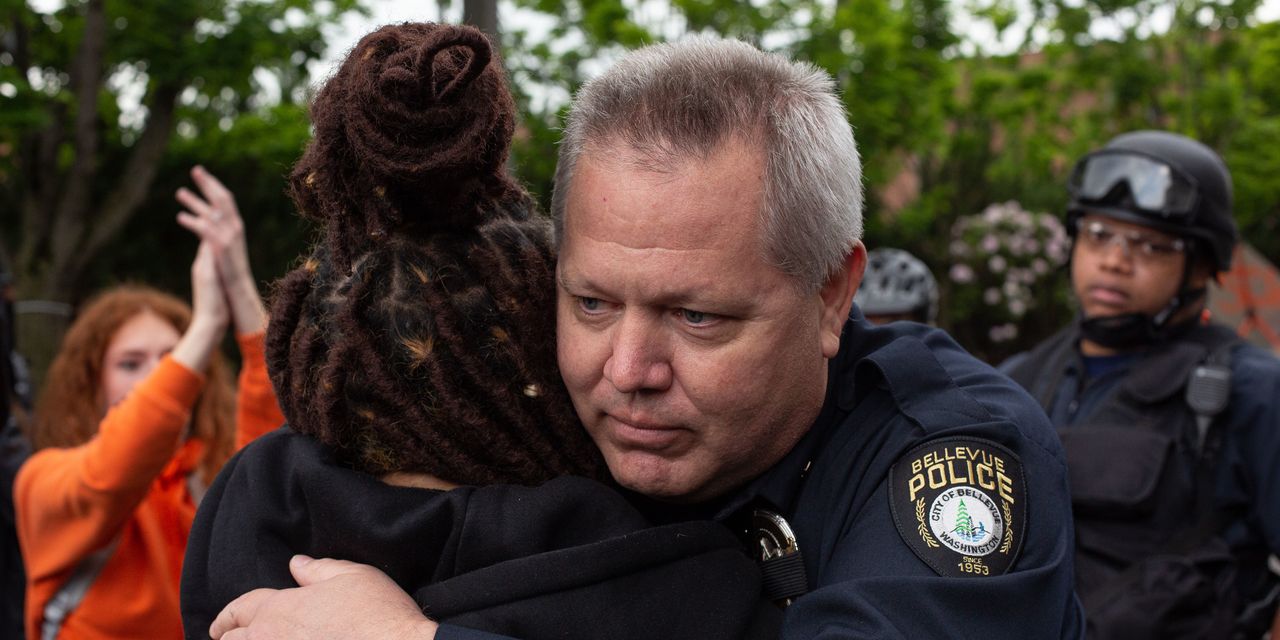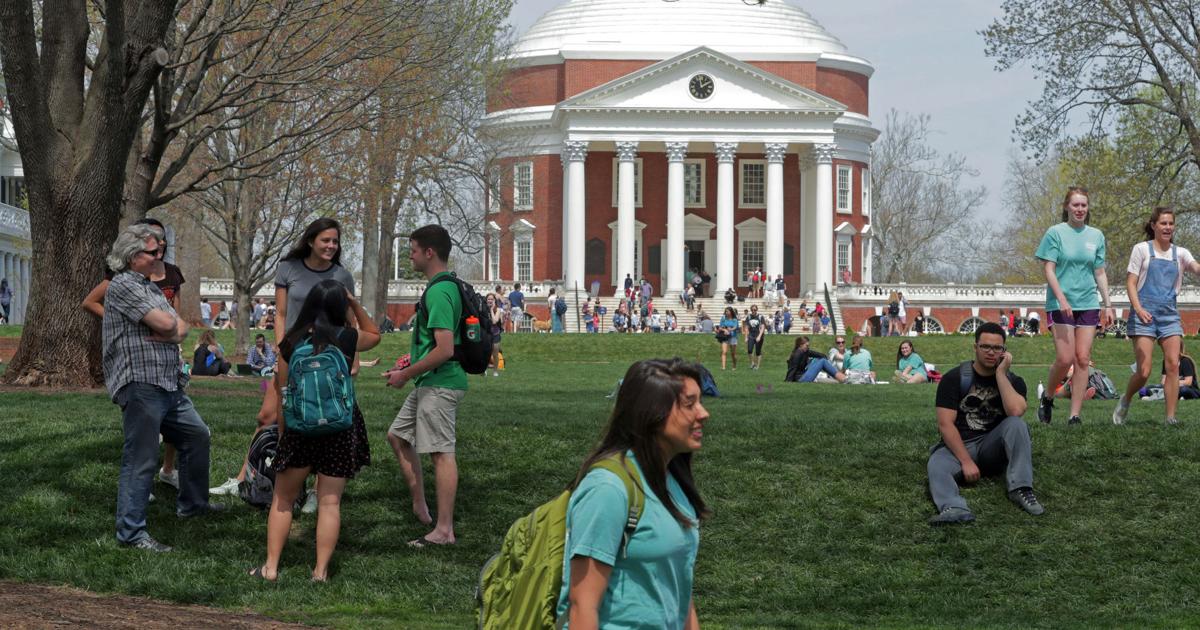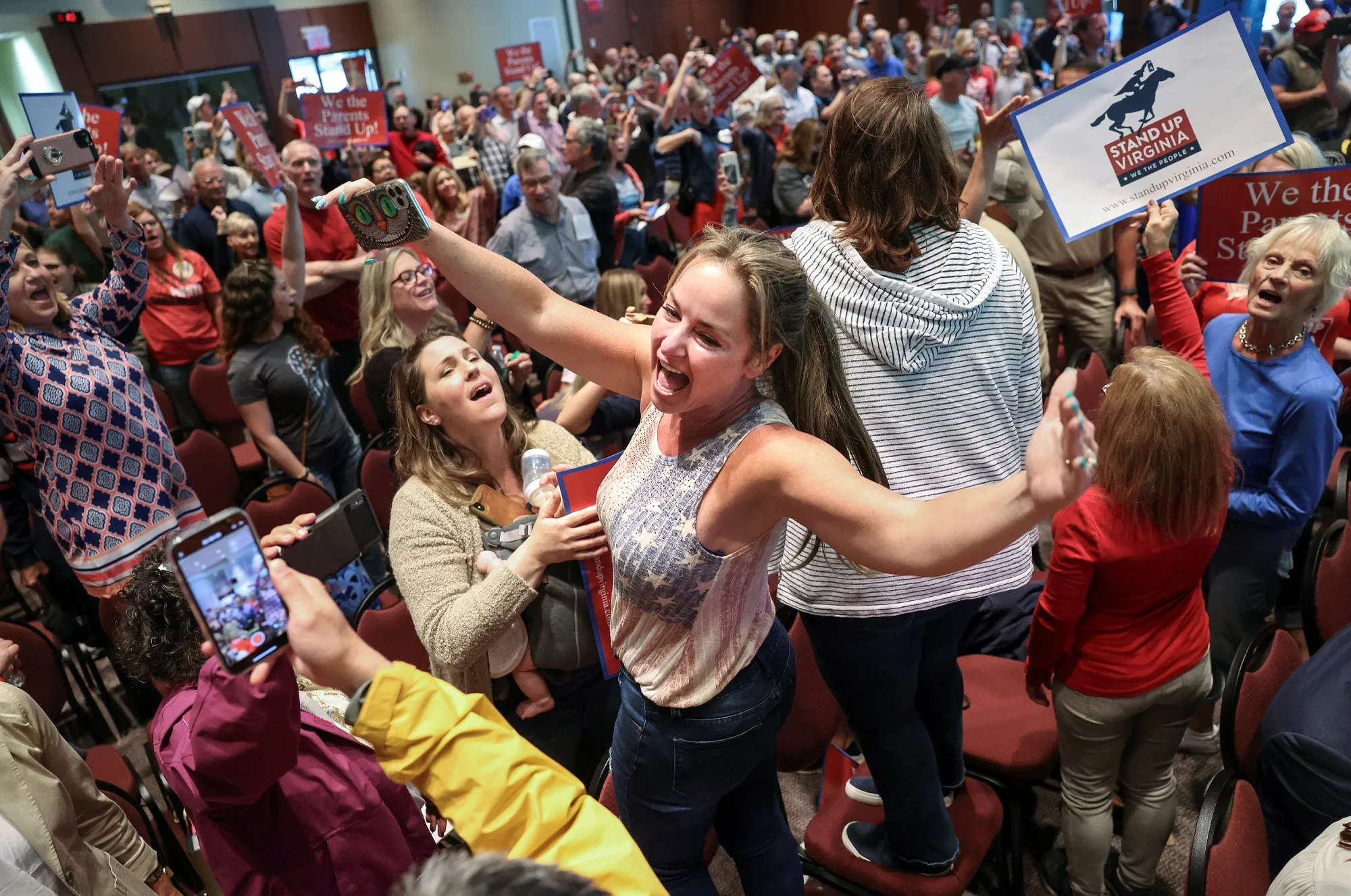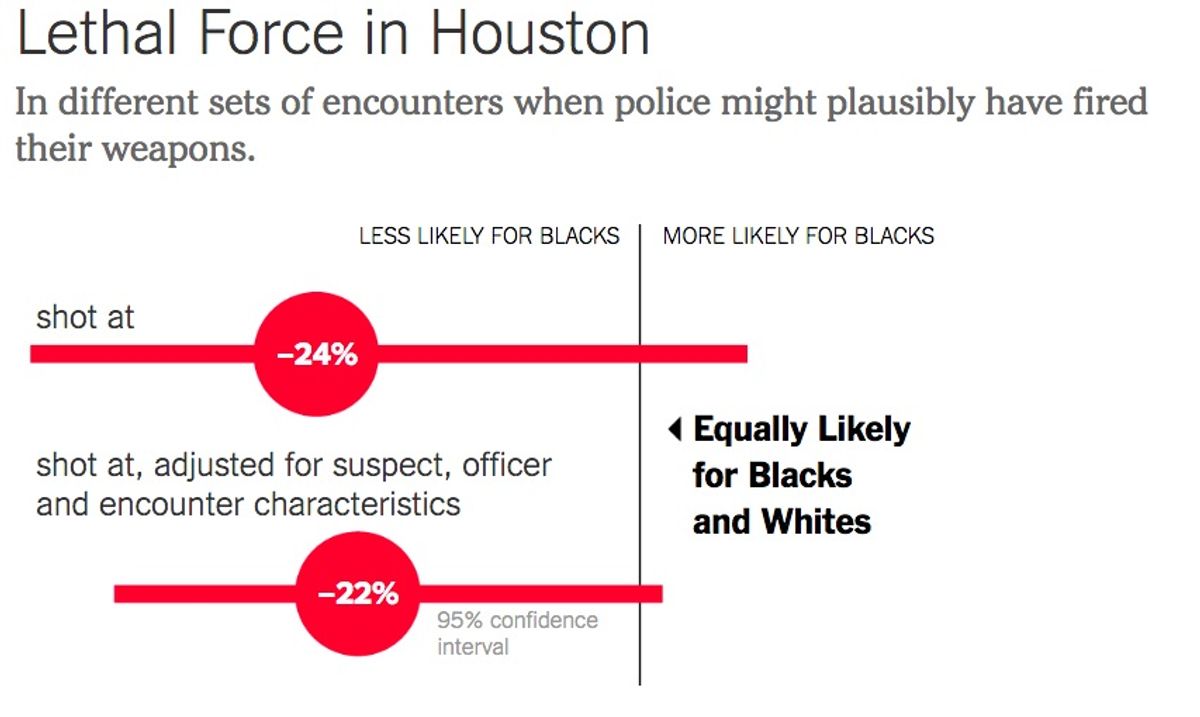Unfortunately, I’m not sure those papers support the conclusions you make.
The first paper shows that there may be an increase in crime after a highly publicized police incident. It doesn’t really address any questions around bias of the incidents. Additionally, if there is any increase in crime, should there be an emphasis on decreasing those incidents?
From the second paper:
“On non-lethal uses of force, there are racial di↵erences – sometimes quite large – in police use of force, even after accounting for a large set of controls designed to account for important contextual and behavioral factors at the time of the police-civilian interaction. Interestingly, as use of force increases from putting hands on a civilian to striking them with a baton, the overall probability of such an incident occurring decreases dramatically but the racial difference remains roughly constant. Even when officers report civilians have been compliant and no arrest was made, blacks are 21.2 percent more likely to endure some form of force in an interaction.”
Edit: Fryer sums it up here.
There are racial differences in use of nonlethal force, but not in officer-involved shootings.

www.wsj.com
You cut off the majority of the papers conclusions in favor of the snippet you wanted. Here’s the whole thing for those that don’t want to read the long methods and statistical analysis:
Conclusion (starting from where you cut it off):
Yet, on the most extreme use of force – officer-involved shootings – we are unable to detect any racial differences in either the raw data or when accounting for controls.
We argue that these facts are most consistent with a model of taste-based discrimination in which police officers face discretely higher costs for officer-involved shootings relative to non-lethal uses of force. This model is consistent with racial differences in the average returns to compliant behaviors, the results of our tests of discrimination based on Knowles, Persico, and Todd (2001) and Anwar and Fang (2006), and the fact that the odds-ratio is large and significant across all intensities of force – even after accounting for a rich set of controls. In the end, however, without randomly assigning race, we have no definitive proof of discrimination. Our results are also consistent with mismeasured contextual factors.
As police departments across America consider models of community policing such as the Boston Ten Point Coalition, body worn cameras, or training designed to purge ocers of implicit bias, our results point to another simple policy experiment: increase the expected price of excessive force
39
on lower level uses of force. To date, very few police departments across the country either collect data on lower level uses of force or explicitly punish officers for misuse of these tactics.
The appealing feature of this type of policy experiment is that it does not require officers to change their behavior in extremely high-stakes environments. Many arguments about police reform fall victim to the “my life versus theirs, us versus them” mantra. Holding officers accountable for the misuse of hands or pushing individuals to the ground is not likely a life or death situation and, as such, may be more amenable to policy change.
****
The importance of our results for racial inequality in America is unclear.
It is plausible that racial differences in lower level uses of force are simply a distraction and movements such as Black Lives Matter should seek solutions within their own communities rather than changing the behaviors of police and other external forces.
Much more troubling, due to their frequency and potential impact on minority belief formation, is the possibility that racial differences in police use of non-lethal force has spillovers on myriad dimensions of racial inequality. If, for instance, blacks use their lived experience with police as evidence that the world is discriminatory, then it is easy to understand why black youth invest less in human capital or black adults are more likely to believe discrimination is an important determinant of economic outcomes. Black Dignity Matters
“Conclusion
Rooting out bias and ensuring constitutional policing is one of the most important issues of our time. Pattern-or-practice investigations – a way to police the police – are a key tool to accomplish this. On average these investigations have negligible impacts on subsequent homicide or total crime rates. But, as we have illustrated throughout, this aggregate number masks important heterogeneity.
The incident that sparks an investigation into a police department is an important determinant of how the investigation will impact policing and crime. For investigations that are sparked by mostly civilian complaints, allegations, lawsuits or media reports of excessive force, investigations caused a statistically significant decline in homicide and total crime rates. These investigations saved lives – 61 per investigation, in the 24 months following investigations.
For the
five investigations that were sparked by nationally visible incidents of deadly use of force – Baltimore, Chicago, Cincinnati, Ferguson and Riverside– investigations cause statistically significant increases in both homicide and total crime. Contrary to other investigations, investiga- tions during this time lost lives – 179 of them, per investigation, in the 24 months following the start of the investigation. That’s 893 total. Almost 900 individuals whose potential may not have been realized. And, we are still counting. A back-of-the-envelope calculation suggests that these five cities converge to pre-investigation levels 51 months after the investigation and, by that time, almost 1214 excess homicides will have occurred.
33
The leading theory for why some investigations have led to an increase in crimes is a striking decrease in the quantity of police activity – which is evident in all cities we were able to collect data. All other theories considered contradict the data in important ways, though lack of complete data makes definitive conclusions illusive.
It is important to emphasize, however, that neither our data nor our analysis makes any claim regarding the net social cost or benefit of pattern-or-practice investigations. That’s well beyond the scope of this paper. Indeed, many argue that the federal government has been an important catalyst for greater equality in housing, labor markets, marriage, and voting rights.
Despite the lack of welfare analysis, we hope these results encourage introspection on the trade- offs involved when we increase scrutiny on police departments, particularly in the midst of civil unrest. The social objective is to eliminate bias without causing police to retreat from activities that suppress crime, and save lives. A troubling possibility is that the types of police activities that keep crime rates low are inherently unconstitutional and hence we face a tradeoff between allowing uncomfortable amounts of police bias and reducing crime in the very communities which are most impacted by that bias.
One way forward is to design a set of incentives such that we increase the penalties of uncon- stitutional policing and, simultaneously, lower the probability of being wrongfully accused when controversial interactions occur. In this sense, we might keep the expected price of policing constant for officers. There is no free lunch.
If the price of policing increases, officers are rational to retreat. And, retreating disproportionately costs black lives”
www.wsj.com



